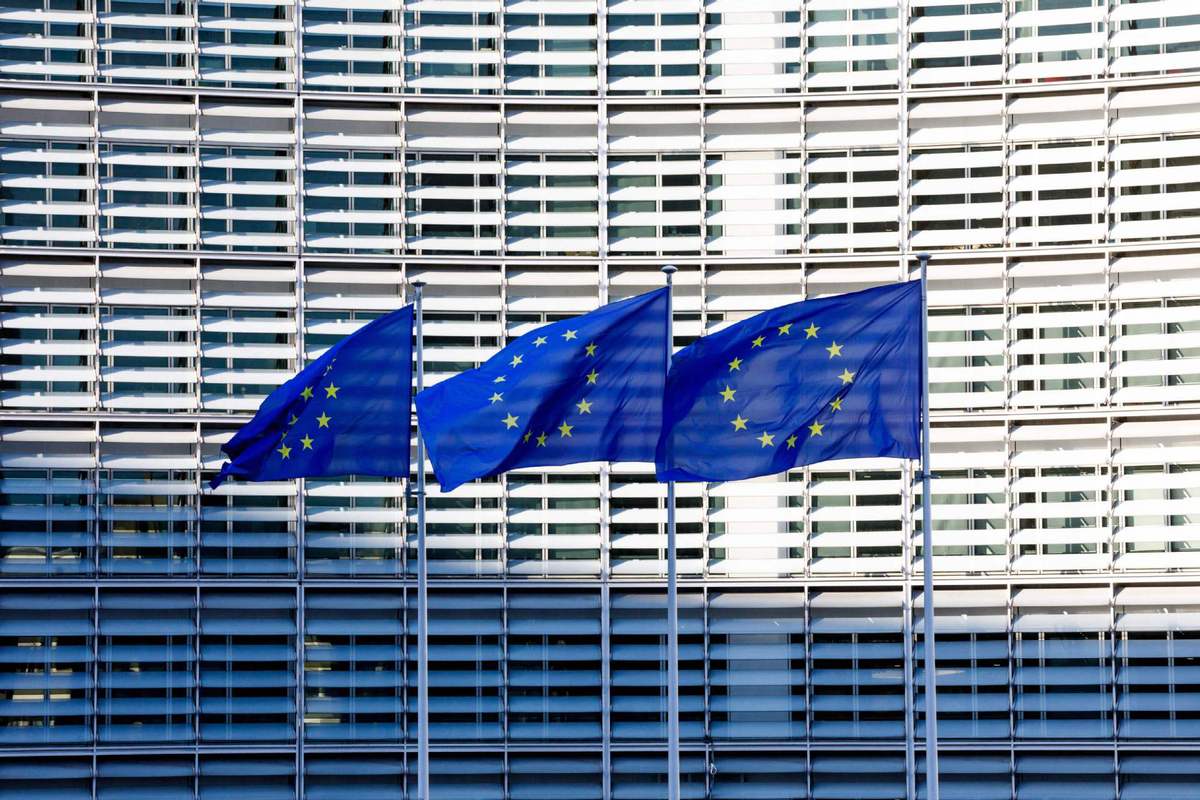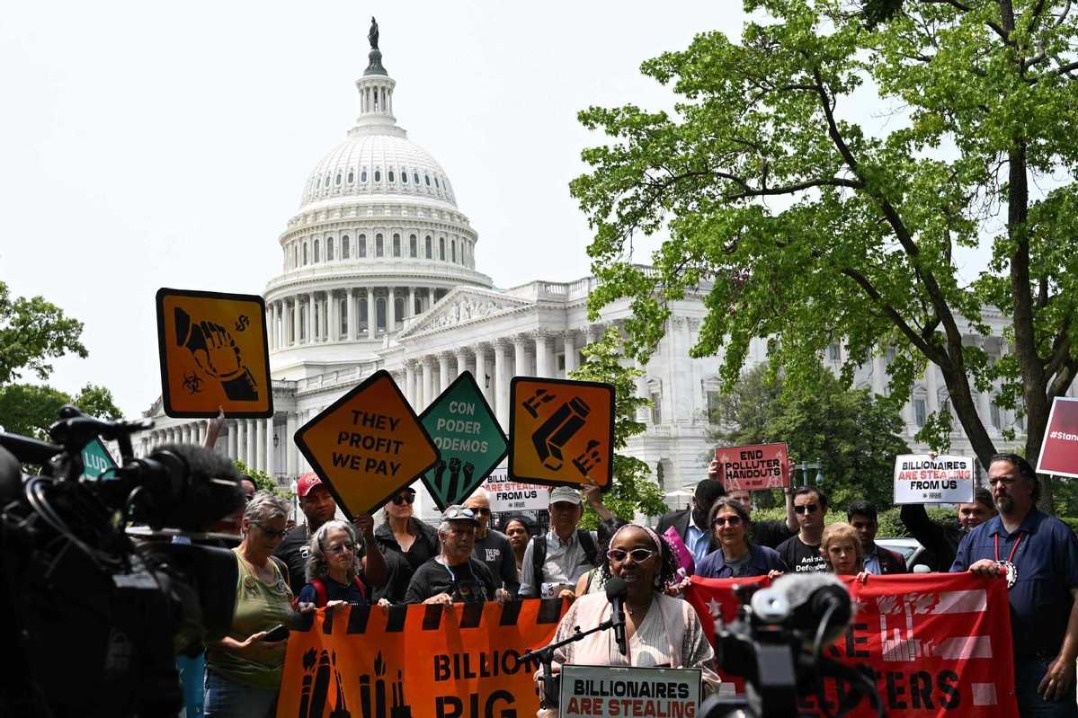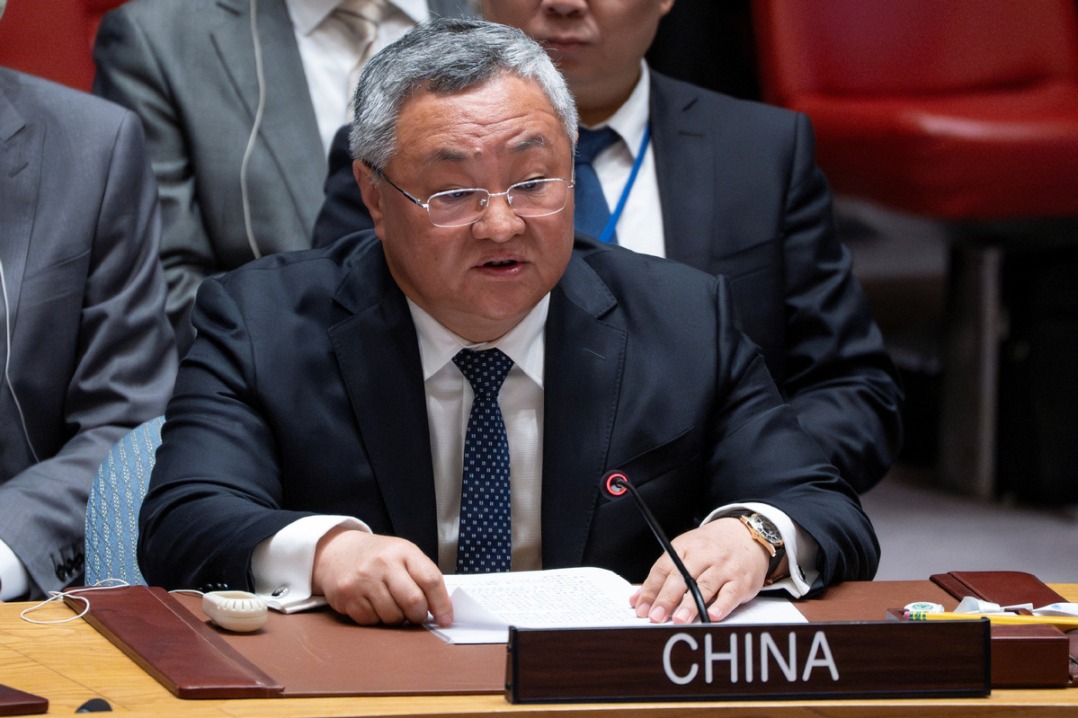Tense time as tariff deadline looms


With the clock ticking down to the July 9 deadline for the delayed introduction of the United States' tariffs on imports from the European Union, lawmakers in the 27-nation bloc are facing a tense wait to see how negotiations go, and what the economic consequences might be.
US President Donald Trump has consistently talked about the EU in a negative way, saying as long ago as February, before the wider tariff program was unveiled, that the EU "was formed in order to screw the US, ... and they've done a good job of it, but now I'm president".
With the prospect of 50 percent tariffs looming, European authorities are looking for ways to defuse the potential for confrontation, and one area that has reportedly been suggested is that of digital markets.
Even before she became European Commission president in 2019, Ursula von der Leyen was particularly interested in reining in the digital market dominance of big tech companies, many of which are from the US, and it is a policy stance that has grown more politically prominent during her presidency.
The Wall Street Journal reported on June 20 that the two sides "appear to be nearing a deal on multiple nontariff trade issues from deforestation rules to the treatment of US tech companies in Europe".
The Financial Times says von der Leyen has insisted that "formal changes to the EU's digital rule book are off the table", but that red line looked slightly less clear last week when Matthias Jorgensen, a senior EU trade official, told European lawmakers that it would look at how US companies "can comply with our legislation in an easier way".
However, significant voices within the EU have been clear in expressing their fears about something as important as the Digital Markets Act being used as a bartering tool.
The commission's Executive Vice-President Teresa Ribera, who oversees the act, has said the legislation is about " (ensuring) big tech plays fairly". "Without it, smaller companies cannot compete, cannot innovate… we want to make friends, not enemies, but we think it is important to respect the law, people, and operators," she said in April.
Stephanie Yon-Courtin, one of the European Parliament's lead negotiators on the act, has written to von der Leyen defending the legislation and warning that any perceived wavering on it would set a "dangerous precedent" and increase the likelihood of further attacks on EU rules.
"It is a framework designed not to target any specific country or company but to address anti-competitive practices," she wrote. "Yielding to external pressure from our American allies to avoid potential diplomatic friction would set a dangerous precedent. Such a decision risks being perceived as favoritism."

































